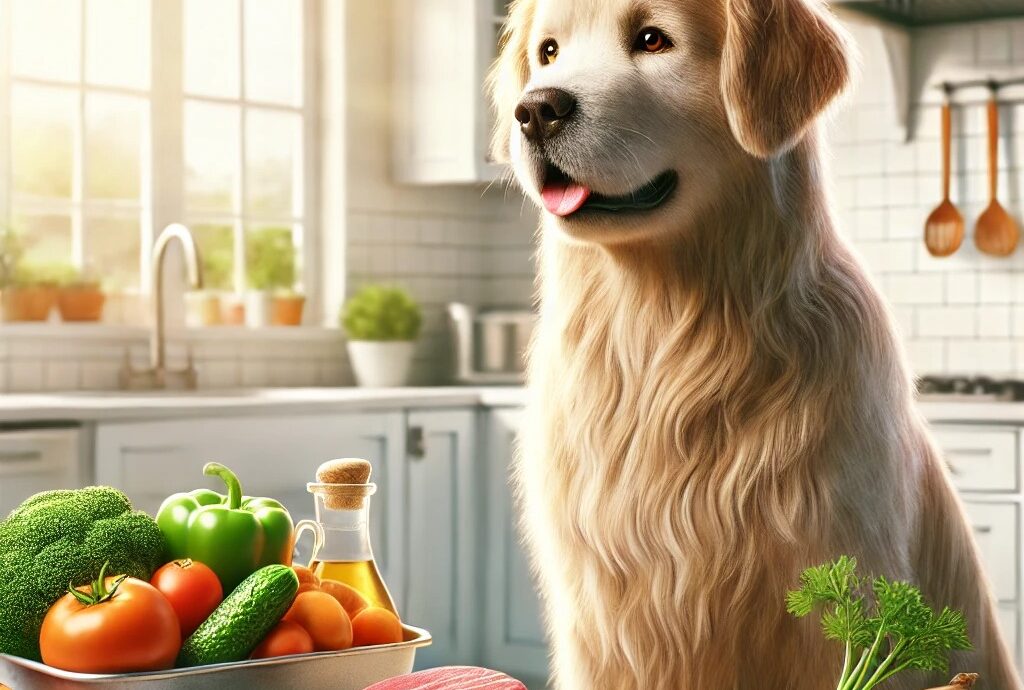- by dogtumor
- julho 7, 2024
Pickles and Pooches: Are Pickled Foods Harmful to Dogs Battling Cancer?

As pet owners look for ways to support their dogs through cancer treatment, diet becomes a crucial aspect of care. This article explores whether pickled foods, often known for their high salt content and preservatives, are harmful to dogs battling cancer. By understanding the nutritional implications, pet owners can make informed decisions about their dog’s diet.
Understanding Pickled Foods
Pickled foods are preserved through a process of fermentation or brining in saltwater, often with added vinegar and spices. While these foods are popular for their tangy taste and extended shelf life, they also contain high levels of salt and sometimes sugar, which can be problematic for dogs, especially those with health conditions like cancer.
Potential Risks of Pickled Foods for Dogs with Cancer
- High Salt Content:
- Dehydration: Dogs with cancer often have compromised immune systems and may struggle with hydration. High salt content in pickled foods can exacerbate dehydration, leading to additional health complications.
- Kidney Stress: Excessive salt can put extra strain on the kidneys, which can be particularly harmful to dogs already undergoing cancer treatments that may affect renal function.
- Preservatives and Additives:
- Chemical Additives: Pickled foods often contain preservatives and artificial additives that can be toxic to dogs. These chemicals may cause gastrointestinal upset or more severe reactions, complicating the health of a dog battling cancer.
- Vinegar and Spices: The acidity of vinegar and the presence of certain spices can irritate a dog’s digestive system, leading to discomfort or worsening existing conditions.
- Nutritional Imbalance:
- Lack of Essential Nutrients: Pickled foods lack the essential nutrients that dogs need for a balanced diet. Dogs with cancer require a nutrient-rich diet to support their immune system and overall health, and pickled foods do not provide the necessary vitamins and minerals.
Safe Dietary Practices for Dogs with Cancer
- Balanced Diet: Focus on providing a balanced diet that includes high-quality proteins, healthy fats, and essential vitamins and minerals. Consult with a veterinarian to develop a diet plan tailored to your dog’s specific needs.
- Fresh and Natural Foods: Opt for fresh, natural foods that are free from preservatives and artificial additives. Lean meats, vegetables, and certain fruits can be beneficial for dogs with cancer.
- Hydration: Ensure your dog has access to fresh, clean water at all times. Proper hydration is crucial, especially for dogs undergoing cancer treatment.
- Avoid Human Foods: Be cautious about feeding your dog human foods, especially those high in salt, sugar, or unhealthy fats. Many human foods can be toxic to dogs or exacerbate health conditions.
Consulting with a Veterinarian
Always consult with a veterinarian before making any significant changes to your dog’s diet, especially if they are battling cancer. A vet can provide personalized recommendations based on your dog’s health status, cancer type, and treatment plan.
While pickled foods may be a tasty treat for humans, they are not suitable for dogs, particularly those battling cancer. The high salt content, preservatives, and lack of essential nutrients make them a poor choice for a canine cancer diet. By focusing on a balanced, nutrient-rich diet and consulting with a veterinarian, pet owners can help support their dog’s health and improve their quality of life during cancer treatment.
Author: dogtumor
Relacionado
Descubra mais sobre Dogtumor
Assine para receber nossas notícias mais recentes por e-mail.

